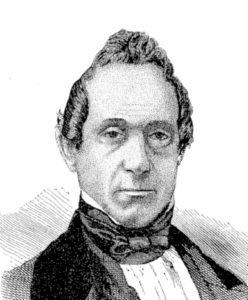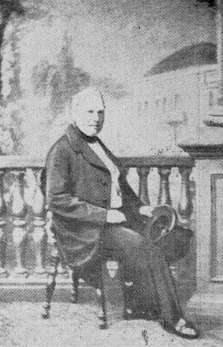
Gustavus Reichhelm. Image credit Sylvain Cazalet
Gustavus Reichhelm (30 January 1807 – 22 November 1861) was a German-born, American homeopathic physician and one of the pioneers of homeopathy in the United States.
He was born at Alt Dam, a village near Stettin in Prussia, on the 30th of January, 1807. His father was the local mayor.
Reichhelm was educated at the Prussian University of Halle, where he studied medicine, and later continued his studies in Berlin.
He became involved in German unification revolutionary activities and was obliged to flee Prussia for the United States under threat of imprisonment for treason.
In the Autumn of 1834, Reichhelm arrived in the United States. Although he was familiar with homeopathic medicine from his student days, it was only after meeting fellow German émigrés William Wesselhoeft and Constantine Hering, that Reichhelm became a convinced believer in Hahnemann’s system.
Reichhelm studied homeopathy at their Allentown Homeopathic College, before commencing practice as an homeopathic physician in Hamburg, PA.
Around the same time, a Catholic priest in Pittsburgh, Father Byer, who had become aware of homeopathy, wrote to Hering to request an Allentown-trained homeopath to act as resident physician for the Catholic Orphan Asylum in the city. Reichhelm responded to the request and, in 1837, he moved to Pittsburgh. There, on October 10, he established the first homeopathic practice west of the Allegheny Mountains, remaining in the city for sixteen very successful years, twelve of which he also continued to serve as physician at the Catholic Orphan Asylum.
In 1853, Gustavus Reichhelm relocated to Philadelphia, where he continued to practice until the evening of his death on November 22, 1861.
Reichhelm’s student and successor was Jabez Philander Dake. At the semi-centenary of the Philadelphia Society in 1887, Dake addressed the congress, describing his mentor as: “finely educated, of commanding presence, self reliant, of few words, and always cheerful and kind.”
Gustavus Reichhelm’s Obituary was in the American Homoeopathic Review and Transactions of the American Institute of Homœopathy.



Leave A Comment